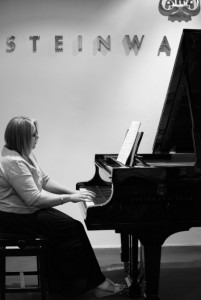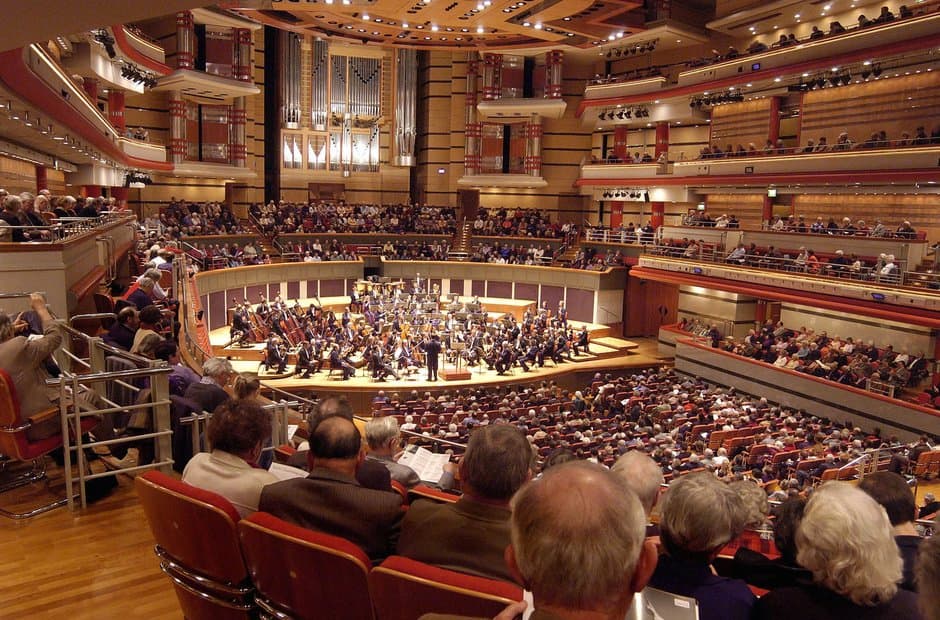 People have been writing about the piano for almost as long as the instrument has existed, from early treatises on technique to manuals of exercises, student guides, pianist autobiographies, pianists writing about other pianists or the great works of piano literature, and novels about pianists and piano playing. It’s a mark of our ongoing fascination with the complexity, beauty and appeal of the instrument that so much has been written – and continues to be written – about the piano. Today the piano seems to be more popular than ever, as evidenced by the wealth of study books, technique manuals, glossy magazines for pianists and piano lovers, books by and about pianists, and of course blogs on the piano, piano playing, piano teaching – and myriad other subjects more or less related to pianists, the piano and its literature.
People have been writing about the piano for almost as long as the instrument has existed, from early treatises on technique to manuals of exercises, student guides, pianist autobiographies, pianists writing about other pianists or the great works of piano literature, and novels about pianists and piano playing. It’s a mark of our ongoing fascination with the complexity, beauty and appeal of the instrument that so much has been written – and continues to be written – about the piano. Today the piano seems to be more popular than ever, as evidenced by the wealth of study books, technique manuals, glossy magazines for pianists and piano lovers, books by and about pianists, and of course blogs on the piano, piano playing, piano teaching – and myriad other subjects more or less related to pianists, the piano and its literature.
I’ve been interested in writing about the piano and piano music since my teens – about the process of learning and playing certain repertoire, what the music of Bach, Schubert, Chopin, Debussy or Messiaen feels like under the hand and the emotional responses it provokes in us. I have also long been fascinated by the pianist’s special connection to the instrument – how it commands an almost mystical attraction over us, an inexplicable magic which draws us back to it time and time again – and how certain chords, passages or entire pieces feel under the fingers and hand. Some years ago I interviewed a concert pianist and in the course of our conversation I asked him what it “felt like” to play Chopin’s B-flat minor Piano Sonata. He replied that it was “horrible”, that one felt “utterly exposed”, and the other words he used to describe this music are those more usually applied to the human body, particularly the body in pain: visceral, gut-wrenching (painful, stomach-turning, extremely unpleasant or upsetting). But they perfectly describe the music: the final movement in particular is painful – its briefness, the swirling motif that turns back on itself and never seems to fully free itself of its tethers, the unsettling notation……
It is things like this which fascinate me as a pianist and a writer.
But writing about the piano is not easy – how to explain the activity, both physical and emotional, of being a pianist, the complexities of piano technique or particular genres or styles of piano music, the psychological and emotional factors which lead us to spend hours and hours conjuring sounds out of that big black box of wood and wires, what motivates some of us to perform in public, why people go to hear live concerts and the special fascination with the pianist alone on the stage……
I’m an avid concert goer, and as a music reviewer (for Bachtrack.com), I get to combine two activities which I love – going to concerts and writing about music. In my reviews of piano concerts, I try to approach the subject from a non-specialist angle, to recreate in words the sense of being there at the concert with me. In order to do this, I write less about the performer’s technique or artistry per se, and choose instead to use descriptive words or metaphors which are not necessarily directly related to the piano or music. It’s not easy to capture in words something so elusive, and personal, as music, and the piano offers so many sonic possibilities that a single word such as “staccato” or “legato” is simply not sufficient to describe that sound. For example, the piano can whisper, stutter, jangle, chime, pulse, throb, hum, spiral, clatter…… Phrases and melodies sing, spool, meander, scurry, tumble, question, breathe…… Chords declaim, shout, growl and float.
And here, just a few examples from actual concert reviews which describe both the sounds the performer makes and the manner in which he or she makes them:
“scurrying and spidery, metallic, stamping, tinkling, growling, manic.” (my own review of Maurizio Pollini in the Boulez 2nd Sonata)
“Each and every note placed with thought and imagination”
“Tense, heavy-handedness”
“Trudging through the music”
“Aristocratic subtlety”
“Mumbled into the piano with blurry pedaling”
Many of the words used to describe the piano are drawn from other walks of life to create metaphors for the experience of hearing and playing the piano. But sometimes it’s almost impossible to describe what one has heard: words like “Intense, profound, breathtaking, spellbinding” seem inadequate in the face of truly exceptional piano playing.
Stephen Hough
Liszt: 2 Legendes, S175/R17: No. 1. St. Francois d’ Assise: La predication aux oiseaux





Hey this was a great read thank you for putting it together.